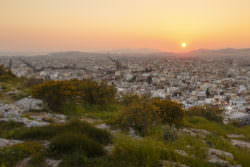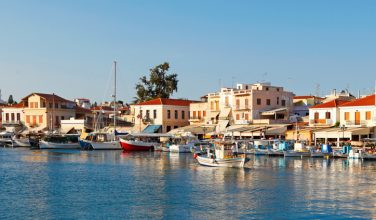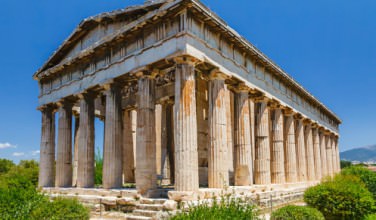Visit Filopappou Hill in Athens, Greece
Comments Off on Visit Filopappou Hill in Athens, Greece
 When people think of visiting Athens, the biggest city in Greece, images of Ancient Greece no doubt come to mind. Not only that, but the remnants of ancient history seamlessly melt together with the modern atmosphere of the bustling city. You don’t want to let a visit to the city pass you by without heading to Filopappou Hill, which is one of the main hills that rise above the city. It is also a place that is rich in history. Here’s more information about visit this historical landmark:
When people think of visiting Athens, the biggest city in Greece, images of Ancient Greece no doubt come to mind. Not only that, but the remnants of ancient history seamlessly melt together with the modern atmosphere of the bustling city. You don’t want to let a visit to the city pass you by without heading to Filopappou Hill, which is one of the main hills that rise above the city. It is also a place that is rich in history. Here’s more information about visit this historical landmark:
How to Get to Filopappou Hill
Athens is the main gateway into the rest of Greece. Even if you plan to visit another location in Greece once you arrive in the country, you should take some time in the city itself before moving on. Filopappou Hill towers about 500 feet above the city, which means it might take some effort to get there if you walk. The good news is that you don’t need to walk. Located in the Thissio neighborhood in the city, you can take the Metro. The Green Line goes to Thissio Station and the Red Line goes to Akropoli Station. Both stations are close to the hill.
History of Filopappou Hill
During ancient times, Filopappou hill was considered sacred, also known as the Hill of the Muses, or “Mouseion.” According to the legends, the nine muses resided here, blessing fortunate artists with their divine gifts. It received its modern name after Gaius Julius Antiochus Epiphanes Philopappos, a Roman consul and well-known benefactor of Athens, whose burial monument was built on the highest point of the hill in 115 AD, and is still visible from a great distance -albeit in ruins- today.
The two other neighboring hills -Hill of the Nymphs and Hill of the Pnyx- were no less important during antiquity. The former was dedicated to offering proper honor to the nymphs, and the latter is the actual birth place of western democracy, where citizens of ancient Greece gathered to make political decisions.
What to See on Filopappou Hill
Today these three hills form a large recreational area with an archeological park, offering a serene atmosphere to visitors and locals who wish to take a break from Athens’ most sought-after attractions teeming with tourists. Be sure to gaze at the Filopappou mausoleum, which is a set of tall ruins that have historical significance. Carved into the rocky hillside, the jail where the famous ancient philosopher, Socrates was held in captivity.
Next, you’ll want to vist the famous open-air Dora Stratou Theatre, which offers entertainment to lovers of authentic Greek dance and music, along with year-round dance education and various folklore workshops.
Both the hill and its surrounding parks are abundant with wildlife, giving a home to nearly 100 different species of birds, including the indigenous peregrine falcon and the Athenian owl. Land tortoises are frequently seen basking on the rocks amongst unique native plants.
As you can see, Filopappou Hill is a place that is worth visiting. Before you leave, don’t forget to catch a glimpse of the Acropolis while here. The view from the hill is a worthy photo opportunity. If you can, head here during sunset so that you can watch the light change over the Acropolis. In fact, this is one of the best places to see the sunset in the city!
Categorized in: About Athens, Greece, Greek Travel Guide
This post was written by Greek Boston
Share this Greek Travel Article:





